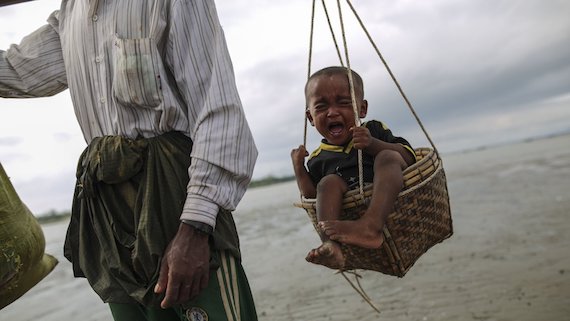COX BAZAR, DHAKA: In a note released on 12 September 2017 Jean Lieby, UNICEF Bangladesh Chief of Child Protection said: “We are facing an unprecedented influx of Rohingya refugees who are coming from Myanmar and crossing into Bangladesh. More than 330,000 people have taken refuge in this district since 25 August.
“The scale and the speed of this influx is unprecedented in Bangladesh. Just to give you an idea: 220 000 people entered Bangladesh in only 6 days – between 4 and 10 September. We have no indication that this influx will stop soon. This is a growing humanitarian crisis and children are at the heart of this crisis. 60% of all refugees are children according to preliminary data”, Jean Lieby added.
“The first thing you see here in the different Rohingya camps is the large number of children. You see children who have not slept for days, they are weak and hungry. After such a long and challenging journey many children are sick and they need health care right away. Children are traumatized. They need protection and psychological support. We also see pregnant mothers and we know that many babies were born since their mothers’ arrival in Bangladesh”, he added.
“We believe that 200,000 Rohingya children need our urgent support”, added UNICEF Bangladesh Chief of Child Protection.
“As camps are growing every day we need to provide safe drinking water and basic sanitation. We want to prevent the incidence of water-borne diseases. There are many vulnerable people in the camps with the high percentage of children, women and elderly who are living in limited space in very poor hygiene conditions. Waterborne diseases are extremely dangerous for children in this type of situation”.
“I am particularly concerned for children separated from their parents or caregivers. We have identified 1,128 separated children so far. However, we expect this number to increase a lot in the coming days”, said Jean Lieby.
“Additional supplies are being brought to Cox Bazar from Dhaka and from Copenhagen where UNICEF’s supply hub is located”, he added.
“The minimum funding requirement is $US 7.3 million however more is needed as the refugee population continues to grow.”

